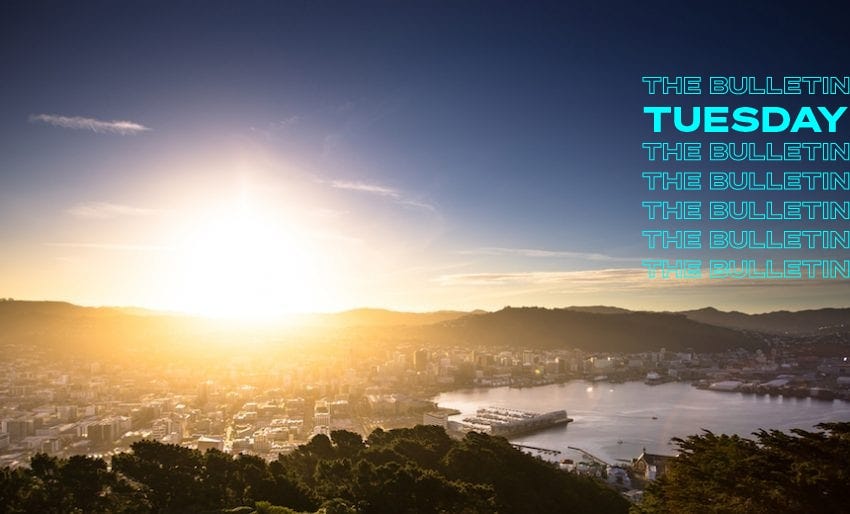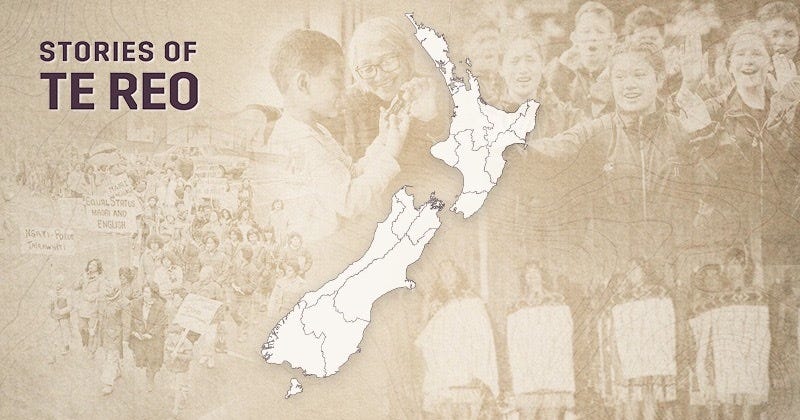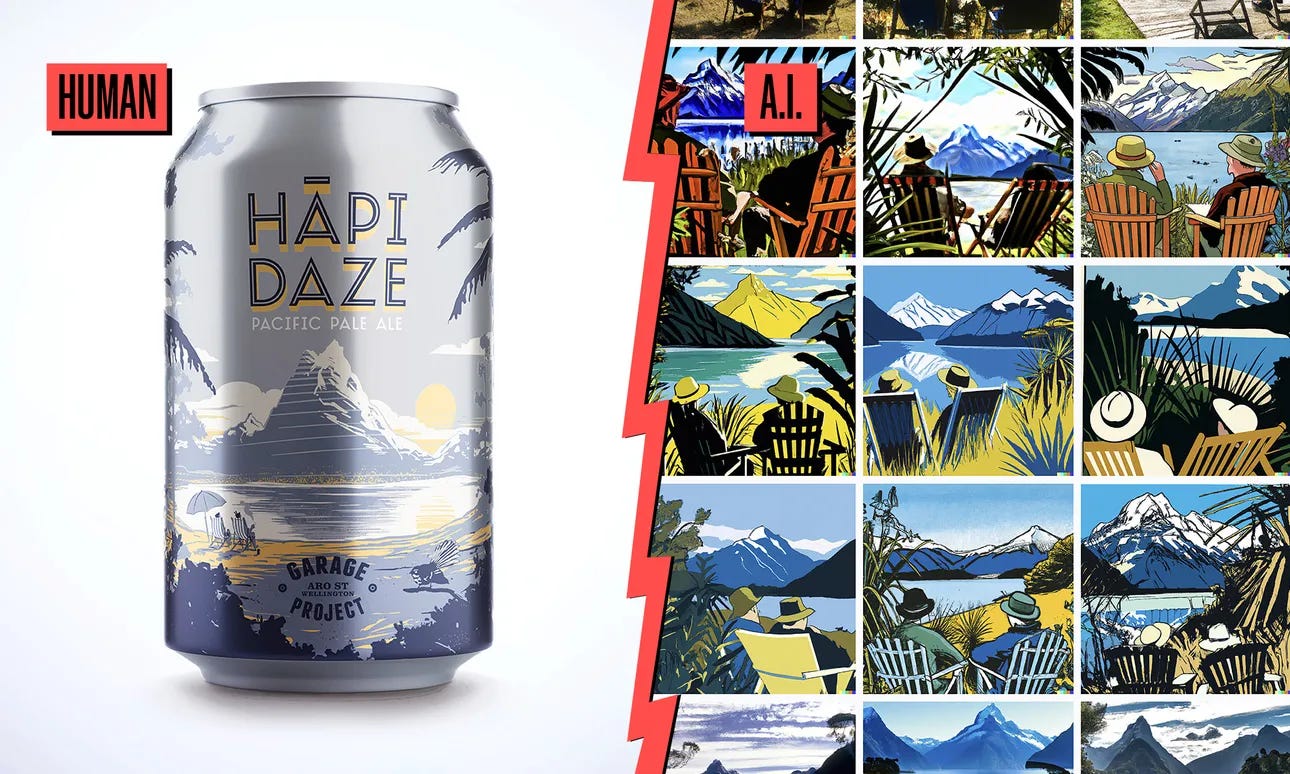What does normal look like now?
Described as “frenemies” by the prime minister, most Covid protections were scrapped at 11.59pm last night. Today is the first day of living normally, but what is normal now?
Mōrena and welcome to The Bulletin for Tuesday, September 13, by Anna Rawhiti-Connell. Presented in partnership with Z Energy.
In today’s edition: mixed reaction to public holiday; NZ academic singled out as raising awareness of China’s influence in media; world no 2 confirmed for tennis tournament; but first, a milestone on the road to a future that's still uncertain.
A new phase of the pandemic dawns but on what kind of normal? (Image: Getty)
The evolutionary arc of our attitudes to Covid
Prime minister Jacinda Ardern, described the Covid measures we said goodbye yesterday to as “frenemies”, after announcing that only the most minimal measures will remain. Within that portmanteau are the divergent social, political, scientific and economic views on where we’ve been, where we’re at, and where we should be, 928 days on from the first case of Covid being reported in New Zealand. The Napier District Court this week has a literal example of the blows we’ve come to as conflicting opinions increased and consensus waned. Yesterday’s announcement was a milestone but one that arrives at a time when most are moving through what American epidemiologist, Steven Philips describes as “an evolutionary arc” - “from fear to resignation to acquiescence to normalcy.”
Is pre pandemic normal the right normal?
Travel will largely return to the “pre pandemic normal”. Masks are no longer required anywhere except healthcare settings. Covid case number updates will be weekly. We have some data that helps us pinpoint what “normal” is supposed to be. In Google’s latest Covid community mobility report for New Zealand, almost every location category is now back above the pre pandemic baseline. The Economist reported last week that most of the world was almost back to pre pandemic levels of economic activity based on its “normalcy index”. New Zealand has a “normalcy score” of 73.3. 100 is pre pandemic “normal”. I keep putting “normal” in air quotes because in many instances it describes a baseline that seems slippery when we still don’t know how much change the pandemic has wrought.
The road back or a glimpse of “the new normal”?
China currently has 65 million people in some state of lockdown. Recent reports show shipment delays from China to New Zealand have jumped 6764% since 2019. While The Economist's data for New Zealand has road traffic back to “normal”, based on Google’s report, public transport use in New Zealand is still down by 26%. Stats NZ reported yesterday that the July number of overseas visitor arrivals to New Zealand was just over half of what it was the same month in 2019. Travel by all accounts still seems quite chaotic and may be changed forever. The Economist concludes that what we’re doing hasn’t changed that much over the last nearly three years but where we’re doing it, has.
A technical milestone
"This is a time when finally, rather than feeling that Covid dictates what happens to us, our lives, and our future, we take back control," said Ardern. Newshub’s Amelia Wade writes that actually it’s the government relinquishing its control. In doing so, the government has left some people without protection and without controls. Hospitals remain under enormous strain, with “build back better” a way off for the health system. We still don’t know what kind of impact long Covid will have. As Siousxie Wiles writes, a study in Australia estimated that long Covid is costing the Australian economy the equivalent of A$100m a week in lost output. For many, yesterday’s news will be a relief and a technical milestone, one that grants permission to be where they already were. For others, it will serve as a reminder of inequity. “Normal” is a very subjective call.
Kia kaha te reo Māori
In 1972, just 50 years ago, the Māori Language petition was presented to parliament, kick-starting the reclamation of the native language of Aotearoa. The battle for that reclamation wasn’t easy, and even now the impacts of te reo Māori being banned and beat out of our tīpuna are ongoing. Launching this week, in remembrance of all those who have fought, and continue to fight for the reo, Te Taura Whiri i te Reo Māori presents Stories of Te Reo, a collection of kōrero about learning, unlearning and relearning te reo Māori. Be part of the movement by submitting your own story, and read hundreds of other Stories of Te Reo here. (Sponsored)
One-off public holiday to mark the Queen’s death
As well as deciding to scrap the Covid protection framework, the other big news yesterday was that we’re getting a public holiday to mark the Queen’s death. In case you missed this on a pretty chocka news day, it’s a one-off and will be on Monday, September 26. A national memorial will be held on the same day. That’s the same day as South Canterbury’s anniversary day and the prime minister said it will be up to local leaders to decide if another day will be chosen to mark that. The mayors of Waimate, Timaru and Mackenzie have proposed moving the region’s anniversary day to coincide with Canterbury’s on November 11. Businesses and business advocates are worried about the cost of additional staff wages while the New Zealand Council of Trade Unions welcomed the news.
China’s media influence grows but with mixed results
A New Zealand academic was singled out at the launch of a new report on China's increasing efforts to shape global media coverage. The report is the work of the US non-profit think tank Freedom House. As Newsroom’s Sam Sachdeva writes, New Zealand wasn’t part of the report but Andrew Nathan of Columbia University, one of the report’s authors, credited a paper from the University of Canterbury’s Anne-Marie Brady as having drawn attention to China's activities. The report assesses China’s global media influence efforts in 30 different countries between 2019 and 2021. It concludes that while the Chinese government is ramping up its use of “sophisticated and coercive tactics”, it’s “reaping mixed results” as awareness grows of the efforts being made and the tactics being used.
September is birthday month for The Spinoff. We’ve come a long way since 2014 and that is in no small part thanks to our members.
Their generous support underpins all our work and has meant we are able to cover more areas of life in Aotearoa, to tackle more stories about our people and issues impacting our communities. From our ongoing coverage of inequality and the cost-of-living crisis, to political reporting and our focus on te ao Māori, it’s important mahi and we can’t do it without you.
Let’s keep a good thing going - tautoko mai, donate today.
Click and collect
Data shows more people living in modern slavery including within New Zealand
Government gives red-zoned land in Christchurch to developer.
Aotearoa’s Casketeers offer services to royal family.
Work on Covid vaccines in New Zealand continues.
Pacific community urged to get vaccinated against measles.
Got some feedback about The Bulletin, or anything in the news? Get in touch with me at thebulletin@thespinoff.co.nz.
If you liked what you read today, share The Bulletin with friends, family and colleagues.
Does an AI art generator respond as effectively to a client's brief as a human illustrator? Tim Gibson took some of his own creative commercial work and went up against the bots. Toby Manhire reports from the local election campaign trail – this time in Nelson. Julie Zhu, director of a new documentary about race relations commissioner Meng Foon, reflects on her own experience as a Chinese learner of te reo Māori. Duncan Greive talks with Alice Snedden about the new (and final) season of Bad News, which launches today on The Spinoff. And Tara Ward reviews Bad Sisters, Sharon Horgan's excellent "Irish version of Big Little Lies".
World no. 2 confirmed for ASB Classic
Casper Ruud will play at the ASB Classic tennis tournament in January. He’ll be the top seed for next year’s men’s event in Auckland. Ruud recently lost the final of the US Open to Carlos Alcaraz and made the final of the French Open this year. Ruud is off to a great start in winning hearts and minds by saying ““New Zealand is a very beautiful country”, that we have “a good culture, good food, good people” and that he is “a big fan of the Hobbit and the Lord of the Rings movies.” The tournament is back after a two-year hiatus with new director Nicolas Lamperin at the helm.











